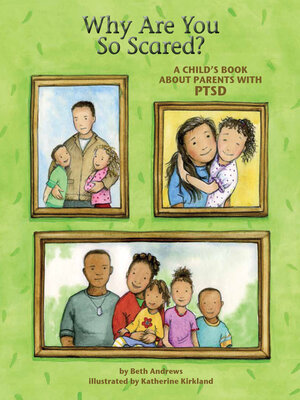
Sign up to save your library
With an OverDrive account, you can save your favorite libraries for at-a-glance information about availability. Find out more about OverDrive accounts.
Find this title in Libby, the library reading app by OverDrive.



Search for a digital library with this title
Title found at these libraries:
| Library Name | Distance |
|---|---|
| Loading... |
When a parent has PTSD, children can often feel confused, scared, or helpless. Why Are You So Scared? explains PTSD and its symptoms in nonthreatening, kid-friendly language, and is full of questions and exercises that kids and parents can work through together.
The interactive layout encourages kids to express their thoughts and feelings about PTSD through writing, drawing, and designing. This book can serve as a practical tool for kids to cope with and eventually feel better about their parent's PTSD.
A comprehensive note to parents offers advice for using this book to help children communicate the emotions that may accompany their parent's PTSD recovery.
From the Note to Parents:PTSD can negatively affect the children of parents or caregivers who experience it. In addition to being confused and worried about their parent or caregiver, children may experience fear and sadness of their own. A negatively affected child may suffer poor performance at school, act out at daycare, or withdrawal from family and friends. PTSD is not just a condition of the adult, but a condition of the family and others close to the child.
There are several important aspects of their parent or caregiver's PTSD that children should understand. Although your child's age and maturity level, and your own comfort level, should dictate how much emphasis you give any particular issue, it's important that each of the following be acknowledged, at least to plant a seed for future discussion. This book, and the discussions it is meant to facilitate, should help your child:







